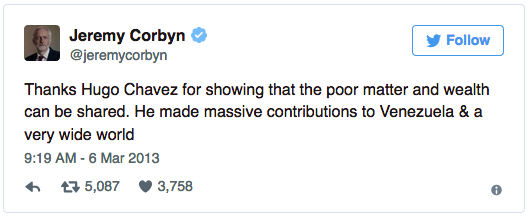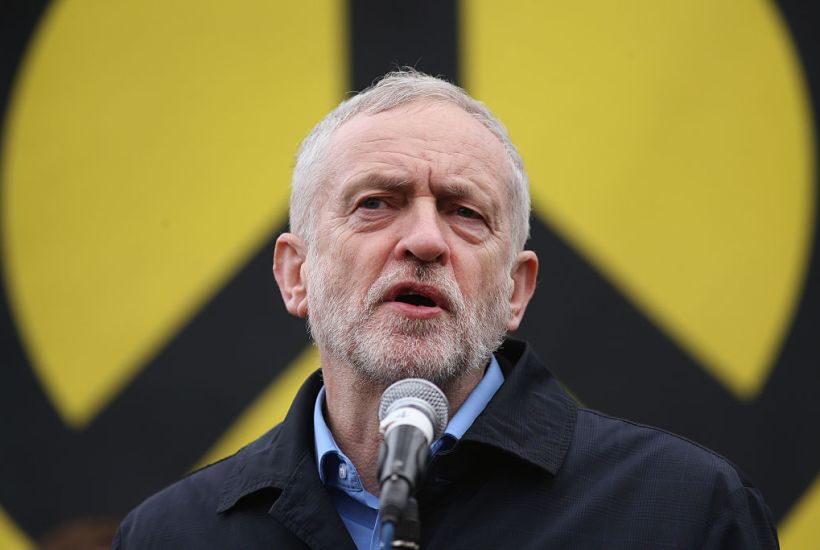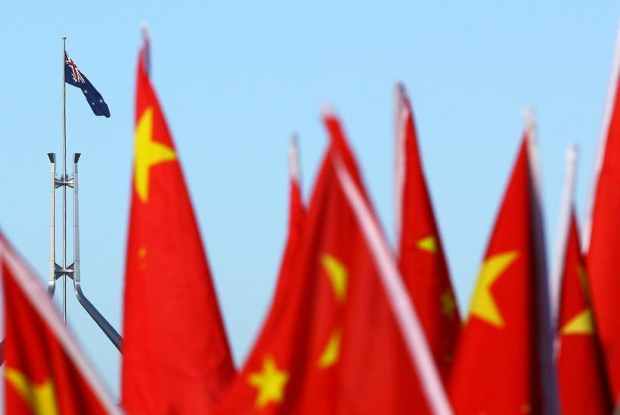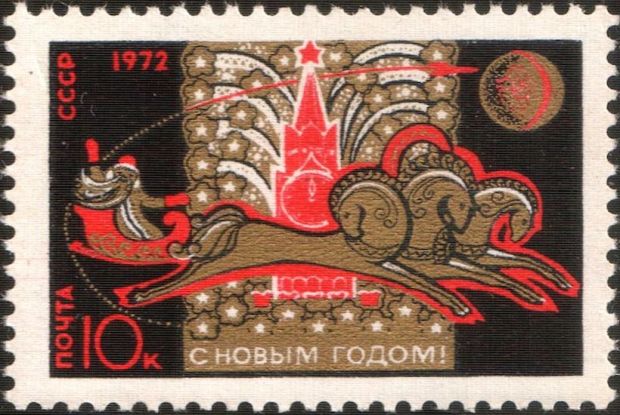In little less than a year, Jeremy Corbyn went from a -40 per cent net favourability rating against Theresa May’s +35, and from a political joke to nearly becoming Prime Minister of Great Britain.
His phenomenal and unexpected rise from near obscurity and oblivion to stardom and almost the ultimate success reflects badly on everyone involved in this sordid and sorry saga: Theresa May and the Tories for their policy direction and lacklustre campaign, the Labour Party for warming up to a malicious dinosaur like Corbyn, and a great chunk of the British voting public for supporting the man.
Those who cast their votes for Labour and therefore for Corbyn to step into the shoes of Disraeli, Gladstone, Churchill, Thatcher and even Blair can be divided into three groups: those who know who Corbyn is and what he stands for and approve, those who don’t know much or at all, and those who know but hey, he’s giving out lots of free things, and damn those Tories and Brexit (even though Labour, at least nominally, supports the policy).
None are excused for voting for perhaps the vilest political creature to lead a major political party in the Western world in recent memory.
1 He hearts Karl Marx – Being interviewed by the BBC’s Andrew Marr before his election as the leader of the Labour opposition, Corbyn gushed about his fellow bearded leftie:
“He was a fascinating figure who observed a great deal and from whom we can learn a great deal,” he said.
“Marx analysed what was happening in a quite brilliant way. The philosophy around Marx is absolutely fascinating.”
Marx’s philosophy, when implemented, led to deaths of 100 million people, most of them within Corbyn’s lifetime. To say that we can learn a great deal from Marx is like saying we can learn a great deal from Hitler’s racial theories; it should automatically disqualify anyone from serious company and consideration.
2 He wants a diplomatic back-channel to ISIS – While he wouldn’t want to have an “open dialogue” with the Islamic State, Corbyn thinks we should keep chatting to them in a hush-hush manner, as he told Marr last year:
The British government maintained a channel through the IRA all through the troubles. I don’t condemn them keeping a back-channel to the Taliban … I think there has to be some route through somewhere [to Isis].
Speaking of the IRA…
3 He supported the Irish Republicans and the Irish terrorists – …Against his own country. As “The Daily Telegraph” investigation two years ago revealed:
For seven years running, 1986-92, at the height of the IRA’s “armed struggle,” Jeremy Corbyn attended and spoke at official republican commemorations to honour dead IRA terrorists, IRA “prisoners of war” and the active “soldiers of the IRA”…
Mr Corbyn also strongly opposed a precursor to the peace process, the Anglo-Irish Agreement. He said on two occasions that the agreement “strengthens rather than weakens the border between the six and the 26 counties, and those of us who wish to see a united Ireland oppose the agreement for that reason”…
In a telephone interview during the recent leadership campaign, Mr Corbyn was repeatedly asked by a BBC interviewer whether he condemned the murders by the IRA.
He five times refused to answer the question directly, saying: “I condemn what was done by the British Army as well as the other sides” before the line went dead.
Corbyn also sat at the general secretary on the editorial board of London Labour Briefing magazine, which explicitly supported the IRA Brighton bombing in which Prime Minister Margaret Thatcher was nearly killed:
In its December 1984 leader, the editorial board “disassociated itself” from an article the previous month criticising the bombing, saying the criticism was a “serious political misjudgement.”
The board said it “reaffirmed its support for, and solidarity with, the Irish republican movement” and added that “the British only sit up and take notice [of Ireland] when they are bombed into it.”
Alongside its editorial, the board reprinted a speech by Gerry Adams describing the bombing as a “blow for democracy” and the “inevitable result of the British presence in [Ireland].”
4 He called Hamas and Hezbollah “friends” – The Palestinian terrorists and the Lebanese terrorists that is. Corbyn now says he regrets his choice of words, one of the very few occasions he does:
“The language I used at that meeting was actually here in parliament and it was about encouraging the meeting to go ahead, encouraging there to be a discussion about the peace process,” he said.
Asked whether he still regarded Hamas and Hezbollah as “friends”, the Labour leader said: “No. It was inclusive language I used which with hindsight I would rather not have used. I regret using those words, of course.”
Eight years after the said meeting, the Hamas Charter still rejects Israel’s right to exist and calls for the liberation of all Palestine. As Howard Jacobson notes in the generally pro-Corbyn “Independent”:
And if sweet-talking Hamas is to be forgiven for the results it might yield, then by the same logic Corbyn should be cosying up to Benjamin Netanyahu. In fact, the Stop the War Coalition, which Corbyn chairs, is pressing for Netanyahu to be arrested for war crimes when he visits Britain and, at the time of writing, Corbyn is listed to be among those demonstrating against the presence of the Israeli soccer team in Cardiff. To terrorists we speak, to footballers we don’t.
5 He compared Israel to ISIS – Ironically while launching the report that investigated the growing anti-Semitism within the Labour Party:
“Our Jewish friends are no more responsible for the actions of Israel or the Netanyahu government than our Muslim friends are for those of various self-styled Islamic states or organisations.”
Many listeners equated Mr Corbyn’s comments with a direct comparison between the Israeli government and Isis, which calls itself the “Islamic State”.
The Afghan Taliban also styles itself as the “Islamic Emirate of Afghanistan” and countless other Islamist terror groups are waging insurgencies to build their own states governed under a fundamentalist interpretation of Sharia law, including Boko Haram in Nigeria and al-Qaeda in Yemen.
6 He’s got a blind spot towards anti-Semitism – According to his former adviser, Corbyn just doesn’t get it:
Harry Fletcher, who was Mr Corbyn’s media and strategy adviser from 2015-16, said the Labour leadership had an “inability to understand why they’re perceived as anti-Semitic”.
In a piece written for the Sunday Times, he said: “Jeremy believes he is completely non-discriminatory. He would never be hostile to someone in the street. But he is, if you like, anti-Semitic along the institutionalised lines of the Metropolitan police in the 1990s, when they messed up the Stephen Lawrence investigation”.
He added that he had told Mr Corbyn “to say again and again” that he supported the Jewish community.
But “he just couldn’t see it at all”, and became angry when attacked for his failure to deal with the issue.
As one observer keenly wrote, “The concern here is not that Corbyn indulges in anti-Semitism. He does not. The concern is that he is has associated with others who have”, being blinded by his old school leftist disdain for own society and its values and cosying up to anyone who “resists” or “opposes”, no matter how unsavoury.
7 He doesn’t believe in the NATO alliance – Ironically (again) like Donald Trump, whom he despises. Speaking while campaigning for the leadership of the Labour Party
Corbyn said he had “not been supportive” of NATO since collapse of communism and added: “It’s a Cold War organisation, it should have been wound up in 1990.”
Not surprisingly, Corbyn believes that the NATO expansion into the Central Europe was a mistake and that states like Poland should have stayed “non-aligned” in their foreign policy. And year later, he was still trying to weasel his way out of trying to commit to the principle of defending a NATO ally:
“I would want to avoid us getting involved militarily by building up the diplomatic relationships, and also try to isolate any country in Europe. To bring them up.”
Pressed further by ITV’s Carl Dinnen about what he would do if a NATO country was invaded, Corbyn said: “I don’t wish to go to war. What I want to do is achieve a world where we don’t need to go to war, where there is no need for it. That can be done.”
8 He takes the Russian side of the Ukrainian conflict – and blames the West (of course) for the crisis:
In an article for the Stop War Coalition in March 2014 Corbyn opposes providing Ukraine with military support in the wake of the Maidan revolution, and echoes Russian claims that it was NATO scheming that lay at the heart of the crisis. He argues that Ukraine has been “put under enormous pressure to come into the EU and NATO military orbit” and condemns EU leaders for failing to mention “far-right and racist involvement in the [Maidan] uprising.”
“NATO has sought to expand since the end of the Cold War. It has increased its military capability and expenditure. It operates way beyond its original 1948 area and its attempt to encircle Russia is one of the big threats of our time,” Corbyn writes.
All standard Russian talking points on Ukraine, as heard everyday on the Kremlin’s propaganda channel Russia Today. Speaking of Russia today…
9 He loves anti-Western propaganda – Whether it’s Russian:
Corbyn has appeared as a guest on RT, and in a tweet urged followers to watch the station, arguing it provides a more “objective” coverage of world affairs than Western media.
Or Iranian:
Labour party leader Jeremy Corbyn accepted up to £20,000 (about $27,000) for appearances on the Iranian state broadcast network Press TV — a channel that was banned in the UK for its part in filming the detention and torture of an Iranian journalist.
Corbyn was paid for appearances on Press TV five times between 2009 and 2012, according to his register of interests, available at this online House of Commons database.
Corbyn’s final Press TV appearance was six months after the network had its broadcasting licence revoked by Ofcom for airing a forced confession by Newsweek journalist Maziar Bahari. Ofcom is the government’s TV regulatory body which sets rules for UK broadcasters. Bahari told Business Insider that while he was detained by Iranian authorities he was tortured and threatened with execution before he agreed to read out a pre-agreed script on Iranian television, filmed by Press TV.
A spokesperson for Corbyn told Business Insider, “We don’t comment on historical matters.”
Corbyn later explained “he believed he could use his access to the Islamic broadcaster to raise LGBT humans rights issues.” How did that go, Jeremy? Either naive or stupid, but either way very bad judgement.
10 He also spun propaganda for Slobodan Milosevic – Once again exonerating a bloody dictator, denying genocide and ethnic cleansing, and blaming the West. In the words of the parliamentary motion he signed in 2004:
“That this House welcomes John Pilger’s column for the New Statesman issue of 13th December, reminding readers of the devastating human cost of the so-termed ‘humanitarian’ invasion of Kosovo, led by NATO and the United States in the Spring of 1999, without any sanction of the United Nations Security Council; congratulates John Pilger on his expose of the fraudulent justifications for intervening in a ‘genocide’ that never really existed in Kosovo…
11 And for Gaddafi – As recounted by James Bloodworth:
Until mid-2011 I was a member of a small London-based Trotskyist group. Early in that same year, as part of my propaganda efforts on behalf of the group I ended up at a meeting of the Labour Representation Committee, a left-wing faction of the Labour party, where I listened to Jeremy Corbyn deliver a rousing speech on the then raging war in Libya.
From memory, the speech was not so much anti-war, which would have been perfectly reasonable considering talk at the time of NATO intervention, as pro that country’s dictator, Colonel Gaddafi. I do not remember the exact contents of the speech – it took place when Corbyn was an obscure backbencher – only that audible groans filled enlightened corners of the hall, including my own, when the left-winger began to reel off what he considered the “achievements” of the Gaddafi regime.
12 And for Hugo Chavez – Corbyn, still the unrepentant hard-core 1970s commo at heart, clearly has not met a leftist and/or anti-Western dictator he didn’t like.

People are now starving and going through rubbish in search of food in what once was the most prosperous country in South America, and one unusually for the region blessed with natural resources.
13 And for Castro – But of course. On the occasion of Fidel’s 2016 journey down to hell:
“Fidel Castro’s death marks the passing of a huge figure of modern history, national independence and 20th century socialism.
“From building a world class health and education system, to Cuba’s record of international solidarity abroad, Castro’s achievements were many.
“For all his flaws, Castro’s support for Angola played a crucial role in bringing an end to Apartheid in South Africa, and he will be remembered both as an internationalist and a champion of social justice.”
In summary: Jeremy Corbyn represents everything there is to hate about left-wing politics – the unapologetic seventies nostalgia that’s completely unmoored from reality. Not that we should judge people on their appearance, but Corbyn even looks the part: a painfully serious, Lenin-style capped and bearded, small town lumpen-Marxist prophet. And now he’s leading one of the great parties of the British democracy; the commie Bourbon who has forgotten nothing and learned nothing.
PS For the best critique (from the left) of Corbynism as the old style anti-Western leftism that mutates and refuses to die, you can’t go past Alan Johnson’s piece in “New Statesman”.
Arthur Chrenkoff blogs at The Daily Chrenk where this piece also appears.
Got something to add? Join the discussion and comment below.
Got something to add? Join the discussion and comment below.
Get 10 issues for just $10
Subscribe to The Spectator Australia today for the next 10 magazine issues, plus full online access, for just $10.


























Comments
Don't miss out
Join the conversation with other Spectator Australia readers. Subscribe to leave a comment.
SUBSCRIBEAlready a subscriber? Log in